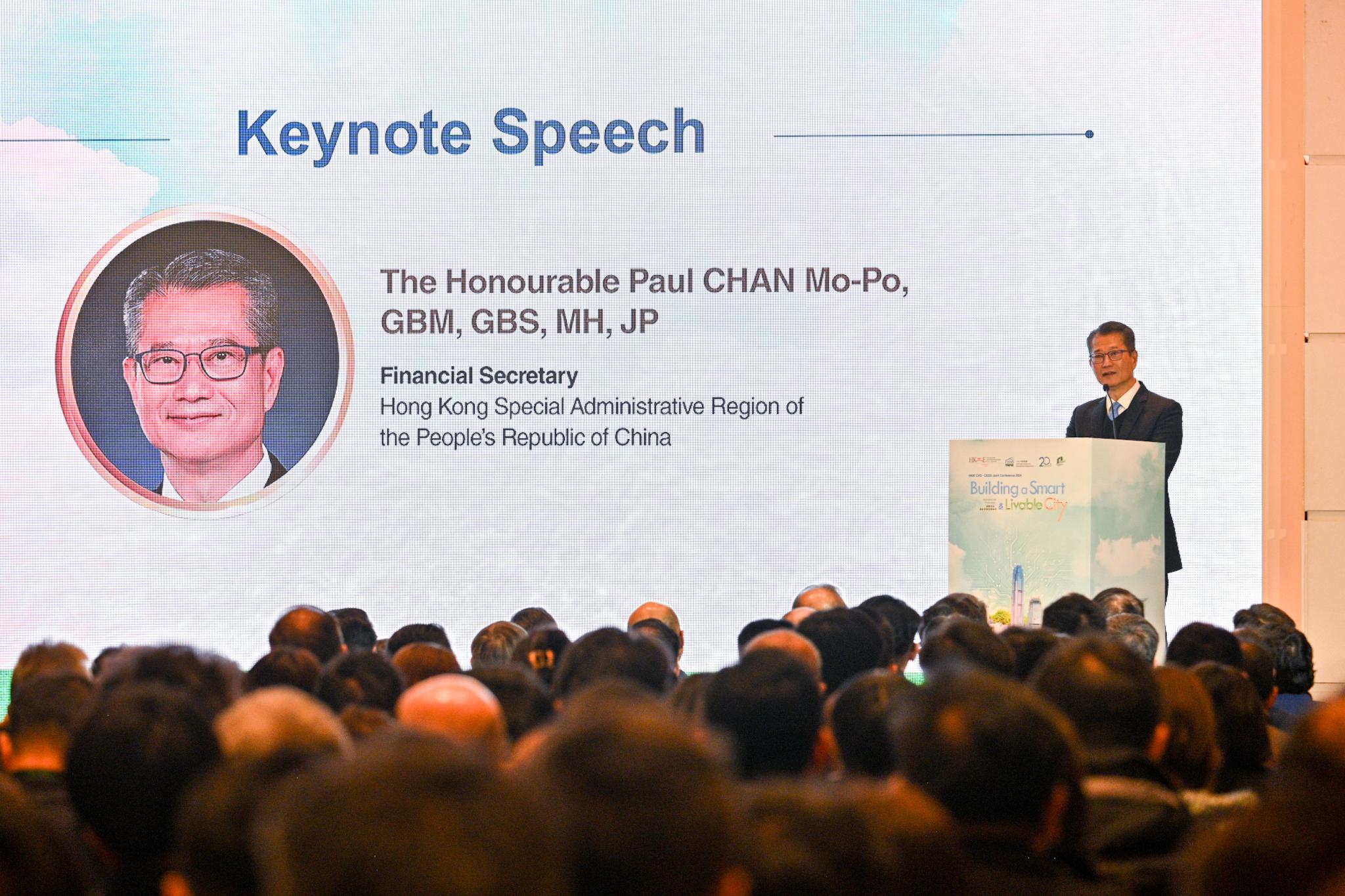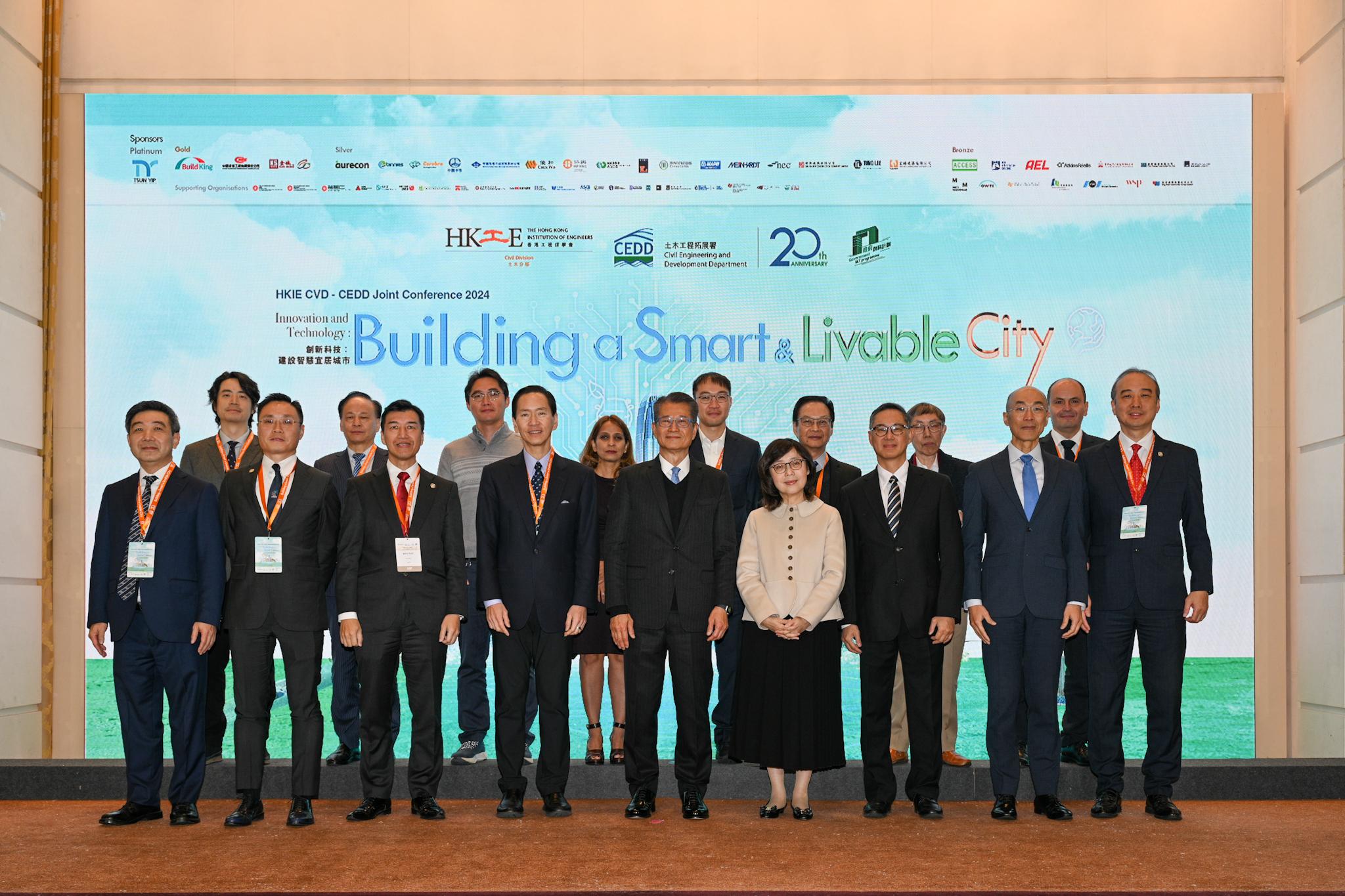LCQ14: Food waste collection and recycling
Following is a question by the Hon Edward Leung and a written reply by the Secretary for Environment and Ecology, Mr Tse Chin-wan, in the Legislative Council today (January 24):
Question:
The Environmental Protection Department (EPD) launched a food waste collection trial scheme in public rental housing (PRH) estates in 2022, and subsequently announced that Smart Food Waste Bins (SFWBs) would be installed in all PRH estates in Hong Kong within this year to collect food waste. As for private housing courts, they can apply for subsidies under the initiative “Solicitation Theme: Supporting Residential Buildings in Adopting Smart Bins Technology in Food Waste Collection and Recycling” of the Recycling Fund or the “Pilot Scheme on Food Waste Smart Recycling Bins in Private Housing Estates” (the Pilot Scheme) launched by the Environmental Campaign Committee (ECC) to install smart recycling bins to collect food waste. However, it is learnt that many private housing courts, single-block private buildings and “three-nil buildings” in Hong Kong are not eligible for the Pilot Scheme, while those buildings may also lack sufficient space to install SFWBs. In this connection, will the Government inform this Council:
(1) of the respective numbers of SFWBs in operation in PRH estates and private housing courts as at January 15 this year, together with a breakdown by District Council district;
(2) of the number of SFWBs which the Government expects will be in operation in Hong Kong by the end of this year;
(3) of the procurement and installation costs, as well as the annual repair and maintenance costs of each SFWB;
(4) of the respective current numbers of suppliers, as well as repair and maintenance contractors of SFWBs in Hong Kong;
(5) given that at present, a number of food waste collectors providing food waste collection and delivery services have applied to EPD for registration as “food waste collectors”, of EPD’s criteria for selecting food waste collectors in different districts;
(6) of the total number of applications for the Pilot Scheme received by the ECC as at January 15 this year; and
(7) in order to complement the Municipal Solid Waste charging to be implemented, whether the authorities will install SFWBs in places other than PRH estates and large housing courts (such as facilities under the community recycling network GREEN@COMMUNITY, public refuse collection points of the Food and Environmental Hygiene Department, community halls, as well as parks and sitting-out areas under the Leisure and Cultural Services Department), so that more members of the public living in premises which have not been or cannot be installed with SFWBs may also participate in food waste recovery?
Reply:
President,
Currently, about 11 100 tonnes of municipal solid waste (MSW) are generated in Hong Kong per day, of which around 30 per cent is food waste. To help the public reduce food waste, the Environmental Protection Department (EPD) is gradually installing food waste smart recycling bins (FWSRBs) in all public residential housing (PRH) estates across the territory, with “GREEN$” points awarded to encourage active participation of the public. As for private housing estates, the EPD will support private residential buildings for the installation of smart recycling bins to collect food waste under the Recycling Fund and the Environment and Conservation Fund (ECF). My reply to the questions raised by the Hon Edward Leung is as follows:
(1) As at January 15, 2024, a total of 449 FWSRBs have been put into service for about 1 000 buildings in PRH estates and private housing estates (including villages), with distribution in various districts as follows:
| District | PRH estate | Private housing estate | Total |
| Central and Western | 3 | 0 | 3 |
| Wan Chai | 0 | 0 | 0 |
| Eastern | 14 | 15 | 29 |
| Southern | 9 | 0 | 9 |
| Yau Tsim Mong | 0 | 0 | 0 |
| Sham Shui Po | 19 | 0 | 19 |
| Kowloon City | 6 | 2 | 8 |
| Wong Tai Sin | 30 | 2 | 32 |
| Kwun Tong | 40 | 8 | 48 |
| Kwai Tsing | 29 | 5 | 34 |
| Tsuen Wan | 14 | 6 | 20 |
| Tuen Mun | 45 | 5 | 50 |
| Yuen Long | 43 | 2 | 45 |
| North | 24 | 6 | 30 |
| Sha Tin | 47 | 15 | 62 |
| Tai Po | 9 | 0 | 9 |
| Sai Kung | 14 | 27 | 41 |
| Islands | 5 | 5 | 10 |
| Total | 351 | 98 | 449 |
(2) The EPD is working with the Housing Department and the Hong Kong Housing Society at full speed to extend the smart food waste recycling service to all PRH estates in Hong Kong. It is expected that more than 700 FWSRBs will be put into service by the end of 2024. We will conduct timely reviews of the participation rate, the amount of food waste collection and the operation efficiency concerned at various PRH estates. Where necessary, we will install additional FWSRBs at individual PRH estates.
As for private housing estates, the EPD is providing support to private residential buildings to install smart recycling bins for food waste collection under the Recycling Fund and the ECF. It is expected that about 100 FWSRBs will be installed at a total of 30 private housing estates and three rural villages through the above scheme before the Lunar New Year. Besides, the “Pilot Scheme on Food Waste Smart Recycling Bins in Private Housing Estates” launched by the Environmental Campaign Committee (ECC) is still in its early stage of open applications. We expect that about 15 to 20 applications from housing estates involving about 120 FWSRBs will be approved in 2024. Since housing estates are required to submit applications for funding under the relevant funding schemes on their own initiative, the actual quantity will depend on the numbers of applications received and approvals granted.
(3) At present, the Government mainly procures FWSRBs from suppliers through rental arrangements. The average monthly rental fee for each FWSRB is about HK$2,000, which includes services fees for transportation, installation, inspection, repairs and maintenance, wireless network, software updates and replacement of consumables.
(4) Currently, there are about 10 suppliers in the local market that provide FWSRBs as well as their repair and maintenance services. The EPD has been closely monitoring the market developments and has opened up the technology platform to encourage the participation of more new suppliers to offer different models, thereby fostering healthy competition.
(5) In 2021, the EPD extended the “Pilot Scheme on Food Waste Collection” by rolling out four food waste collection service contracts in phases, covering Hong Kong Island and Islands District, Kowloon, New Territories East and New Territories West respectively. The services concerned are currently operated by two food waste collection contractors.
The Government has all along been adhering to the principles of “achieving best value for money” and “maintaining open and fair competition” for procurement, with clear guidelines and procedures set out for open tendering. All interested food waste collection contractors are eligible to participate in tendering.
As for the supply contracts of food waste collection services in various districts, the EPD evaluates and scores all technical and price proposals of the bids in accordance with the evaluation criteria and the marking schemes for acceptance of tenders stipulated in the tender documents. The contractor with the highest combined technical and price score is then selected as the successful bidder.
(6) Since December 29, 2023, the ECC called for applications from private housing estates with at least 1 000 households for two-year funding support for the installation and relevant repair and maintenance services of FWSRBs to further encourage recycling of domestic food waste. As at January 15, 2024, the ECC has received a total of six applications for the “Pilot Scheme on Food Waste Smart Recycling Bins in Private Housing Estates”.
(7) In September and December of last year, the EPD installed FWSRBs at two recycling stations in the vicinity of residential areas, namely GREEN@SHAM SHUI PO and GREEN@EASTERN, to conduct trial domestic food waste collection from the neighbourhood (including single-block and “three-nil” buildings) as public collection points. They are complemented by the reward of GREEN$ points to encourage active participation from the public. So far, the trial scheme has received positive responses from the public, with over 14 000 individuals participating in food waste recycling.
The Government needs to consider a number of factors when installing FWSRBs in public venues, such as whether the venue has a suitable location and power supply for FWSRB installation; whether there is enough space for temporary storage of fully filled inner bins; whether the location is convenient for the public to practise food waste recycling; and whether the installation works will disrupt the site operation or cause inconvenience to site users. The EPD will closely monitor the level of public participation in food waste recycling and conduct timely review of the effectiveness of trial public food waste collection points. Based on the findings of the review, the Government will continue to explore installing additional public food waste collection points in suitable locations (such as public markets and refuse collection points) to provide the public with more convenient channels for recycling. read more



